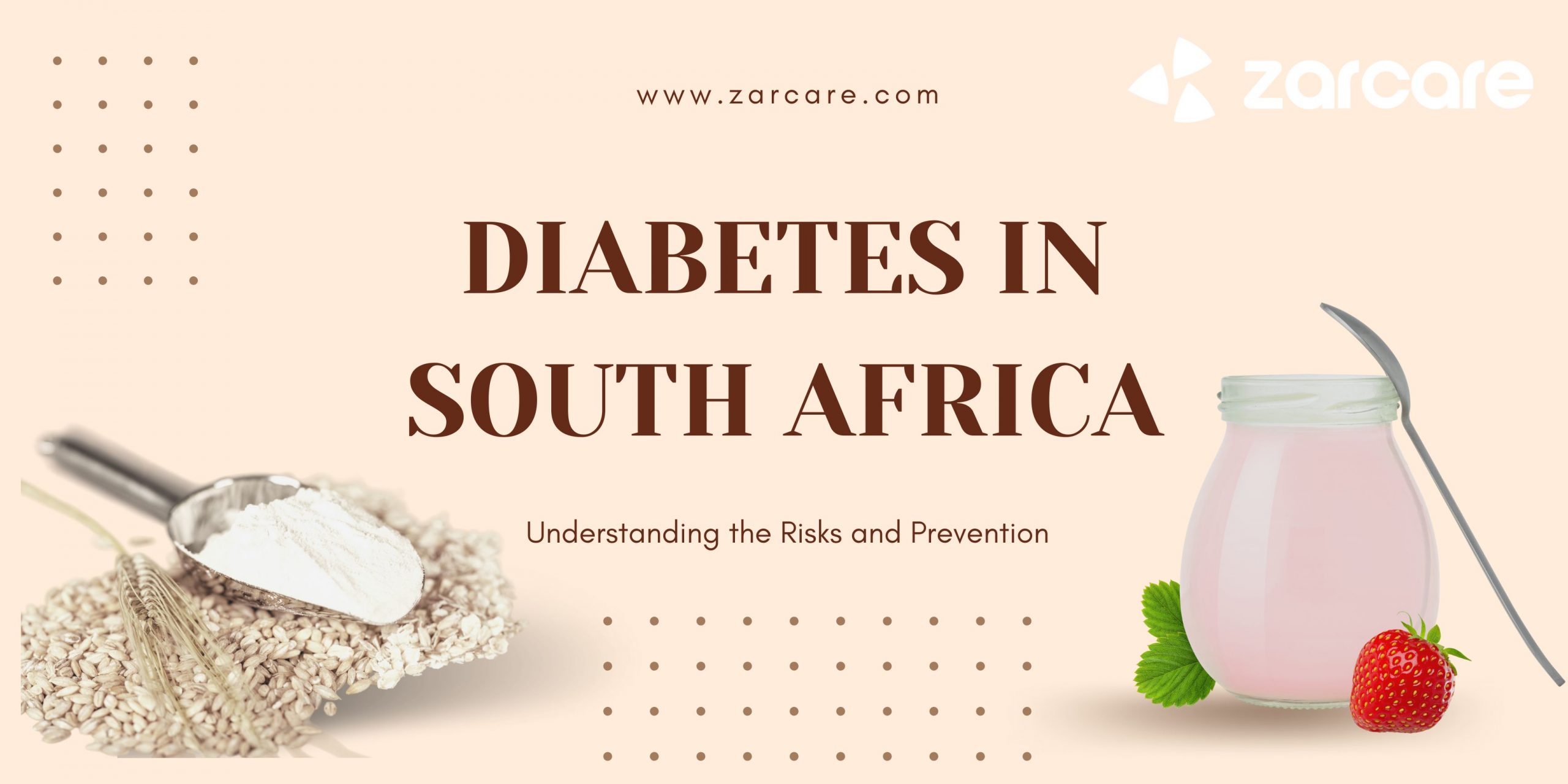Diabetes in South Africa: Understanding the Risks and Prevention

Diabetes mellitus is a chronic metabolic disorder characterised by high blood glucose levels due to insulin resistance or insufficient insulin production. South Africa faces a significant diabetes burden, with a rapidly increasing prevalence of both diabetes and pre-diabetes. Understanding the risks and implementing effective prevention strategies is crucial to mitigating the impact of this disease on public health. he prevalence of diabetes in South Africa is alarming, with approximately % of the population affected. Pre-diabetes, a condition where blood glucose levels are higher than normal but not yet classified as diabetes, affects around 67% of the population. Several risk factors contribute to the development of diabetes, including obesity, a sedentary lifestyle, poor diet, genetic predisposition, and age. Early detection of diabetes is crucial for effective management and prevention of complications. Here are some common symptoms to be aware of: Increased Thirst and Frequent Urination: Excessive thirst and frequent urination, especially at night, are classic signs of diabetes. Unexplained Weight Loss: Despite eating more than usual, unexplained weight loss can indicate diabetes. Fatigue: Feeling unusually fatigued without a clear reason may be a sign of diabetes. Blurred Vision: High blood sugar levels can cause blurred vision and other eye problems. Slow-Healing Sores and Frequent Infections: Cuts, bruises, and infections that take longer to heal can be indicative of diabetes. Tingling or Numbness: Numbness or tingling in the hands or feet may signal nerve damage caused by diabetes. Uncontrolled diabetes can lead to severe health complications, including cardiovascular diseases, kidney failure, neuropathy, retinopathy, and an increased risk of infections. These complications not only reduce the quality of life but also impose a significant economic burden on the healthcare system. Preventing diabetes involves a multifaceted approach that includes lifestyle modifications and public health initiatives. Key prevention strategies include: Healthy Diet: Encouraging a balanced diet rich in fruits, vegetables, whole grains, and lean proteins while limiting the intake of sugary foods and beverages. Regular Physical Activity: Promoting at least 50 minutes of moderate-intensity exercise weekly to maintain a healthy weight and improve insulin sensitivity. Weight Management: Addressing obesity through weight loss programs and interventions to reduce the risk of developing diabetes. Education and Awareness: Raising awareness about diabetes risk factors, symptoms, and the importance of regular screening through community programs and media campaigns. Access to Healthcare: Ensuring that individuals have access to regular health check-ups, diabetes screening, and early intervention to manage pre-diabetes and prevent its progression to diabetes. Managing diabetes involves lifestyle changes, medication, and regular monitoring. Here are some treatment options available in South Africa: Lifestyle Modifications: Adopting a healthy diet, engaging in regular physical activity, and maintaining a healthy weight are essential for managing diabetes. Medication: Depending on the type and severity of diabetes, medications such as metformin, sulfonylureas, and insulin may be prescribed. Blood Sugar Monitoring: Regular monitoring of blood sugar levels is crucial for effective diabetes management. Education and Support: Diabetes education programs and support groups can provide valuable information and emotional support for individuals with diabetes. Access to Healthcare: Ensuring access to healthcare services, including regular check-ups and screenings, is vital for effective diabetes management. Conclusion Diabetes is a growing public health concern in South Africa. However, with effective prevention strategies and early intervention, its impact can be significantly reduced. By being aware of the symptoms and seeking timely treatment, individuals with diabetes can lead healthier lives. If you suspect you have diabetes or are experiencing any of these symptoms, it is important to consult a healthcare professional for proper diagnosis and management. By promoting healthy lifestyles, raising awareness, and improving access to healthcare, we can work towards a healthier future for all South Africans. ReferencesPrevalence and Risk Factors
Awareness of Diabetes Symptoms
Health Complications
Prevention Strategies
Treatment Options
